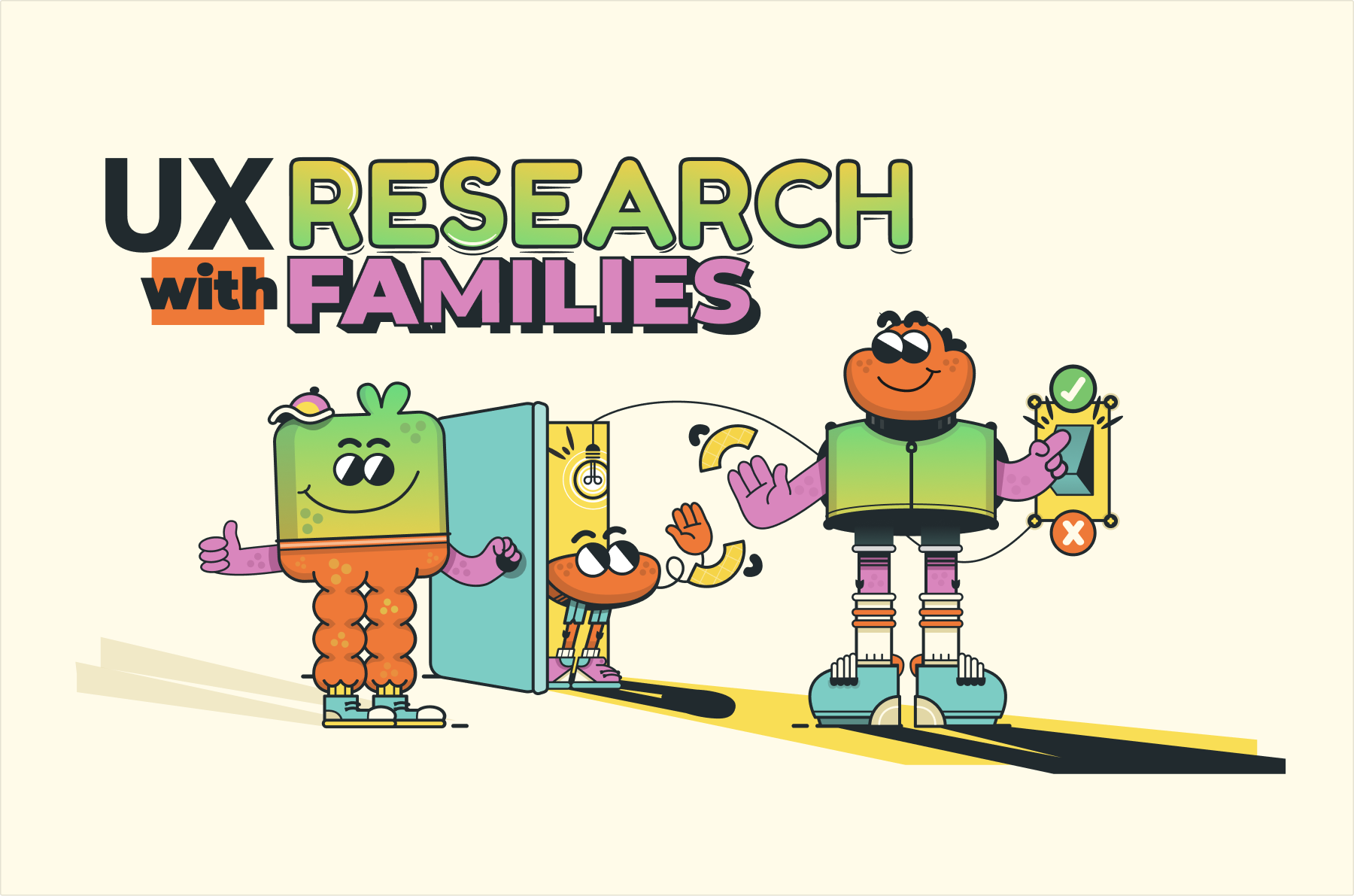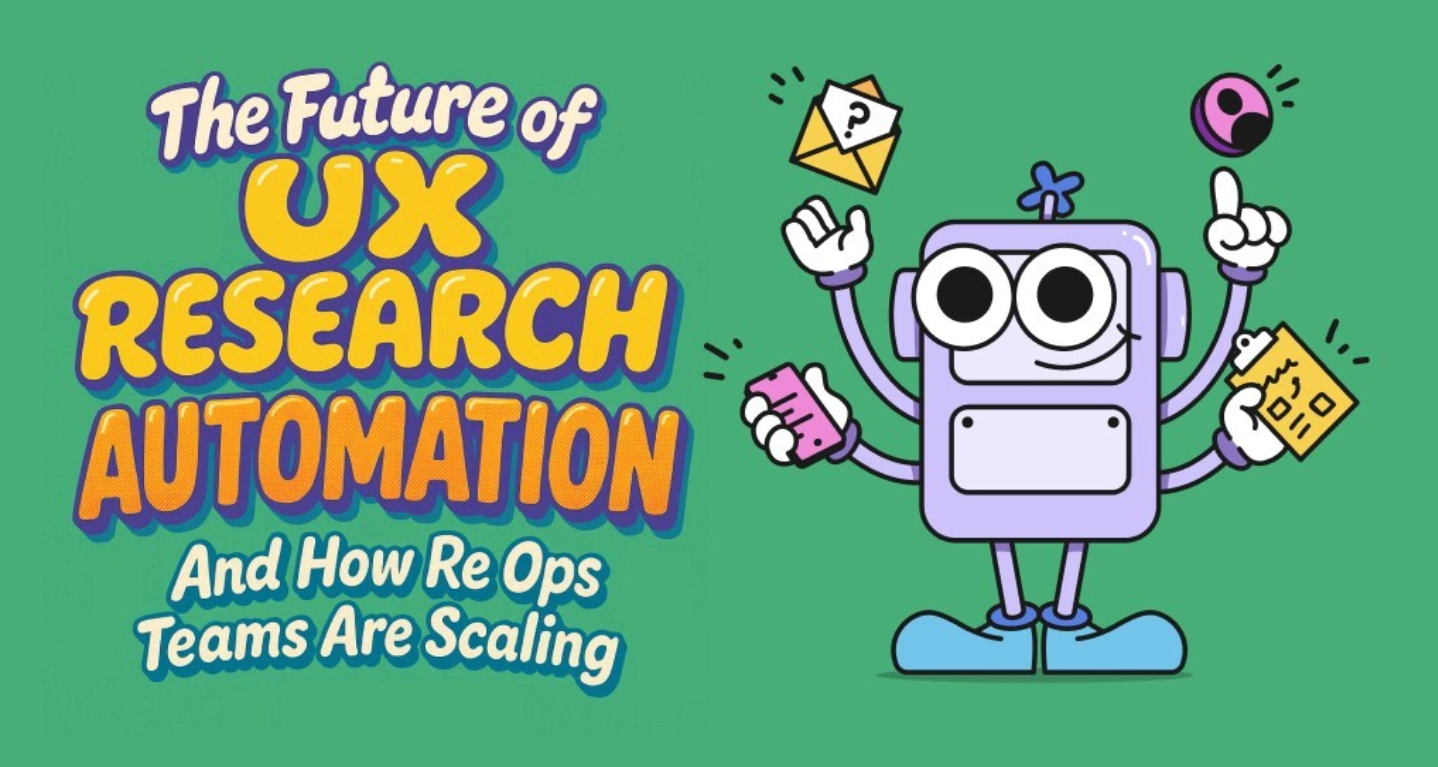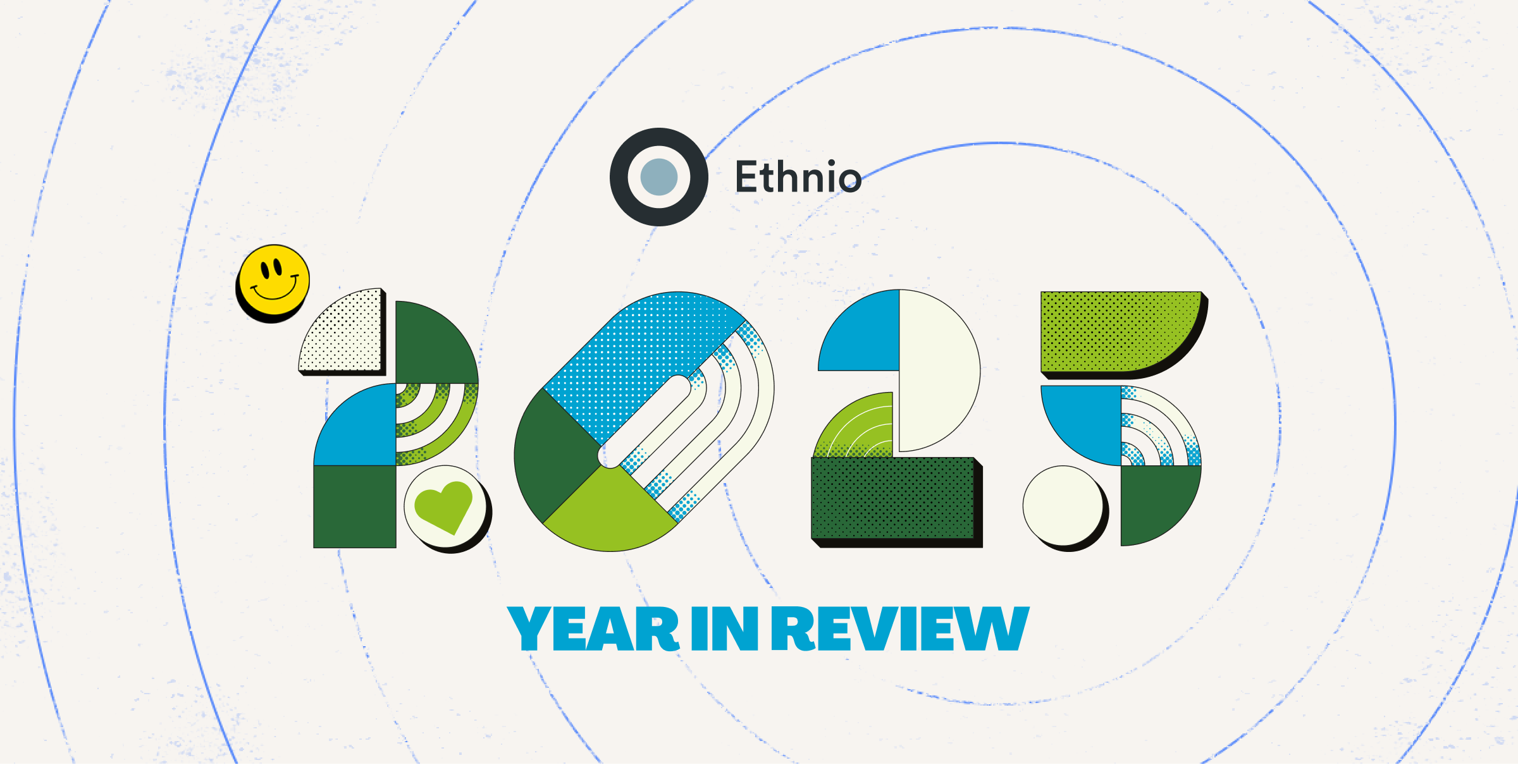Can you trust your user research CRM?
Consider the type of data that user research CRMs typically handle: participant names, contact details, survey responses, product usage data, demographic information, and more. If you're reading this, you’ve likely already taken steps to safeguard this sensitive information within your org.
40% of breaches involved data stored across multiple environments and more than one-third of breaches involved shadow data (data stored in unmanaged data sources), highlighting the growing challenge with tracking and safeguarding data.You’ve probably also considered how a breach involving research data could become a logistical nightmare. Not to mention the additional stress it would place on UXR teams, which are already grappling with reputation and headcount challenges over the past few years (or seemingly forever).
As Research Ops teams accommodate more democratized practices, the pressure to make sure compliance and proper handling of participant data has only multiplied.
Now on top of all that, user research CRM tools come into play, where the focus on data security and privacy isn’t just a feature—it’s a necessity. Let’s get into it.
Data security is a non- negotiable in user research CRM systems because…
Personal information matters
User research CRMs manage a wealth of sensitive data, including participant names, contact details, survey responses, and more. Which can be used for identity theft, leading to financial loss, fraud, and damage to an individual's reputation. We need strong security to protect their privacy.
Weak security is very expensive
Weak security measures can result in significant financial losses and reputational damage. Data breaches not only incur substantial fines, legal fees, and remediation costs. But the real cost? Eroded trust. Target’s consumer perception took a 54.6 percent dip the year following of their 2013 data breach and it took four years of brand loyalty and efforts to improve their security system. Not to mention, the damage in trust between participants and organizations, making it difficult to recruit future participants and maintain the integrity of research efforts.
Secure strategic business information
User research CRMs also store critical business information such as unreleased products, marketing strategies, and proprietary insights. Protecting this strategic data from competitors and cyber threats is vital for preserving your company’s market position and intellectual property. Additionally, leaked sensitive information can invalidate research findings.
Facilitates safe and compliant data sharing
In today’s interconnected business environment, sharing data with partners, vendors, and internal departments is routine. Robust data security makes sure that this collaboration is safe and compliant, protecting both participant and business data.
Common security concerns and emerging threats
Imagine discovering that your CRM has been compromised. With valuable information at stake, these tools are prime targets for malicious actors. From AI to quantum computing, threats are constantly evolving. To protect your research data, proactive measures are essential. Data breaches can lead to severe financial consequences, with an estimated average cost of $4.45 million per breach.
Common threats include site attacks, hacking attempts, unauthorized access, and data exploitation. As more systems integrate with the ever-expanding IoT( "Internet of Things") landscape (projected at 16.7 billion endpoints in 2023), comprehensive security testing becomes crucial.
For most smart devices being made, there’s likely someone in the world reverse engineering it to see how to get in.Without robust safeguards, your valuable research data faces a growing web of dangers.
Orgs are required to adopt a robust and multi-layered approach for advanced threat detection, prevention, incident response strong encryption protocols, and proactive risk management strategies,we can protect our research, our participants, and our organization's reputation.
If you’re in user research, you probably know all these terms but we’re adding them here anyway…
Because better safe than sorry.
Navigating data privacy and compliance in user research requires a solid understanding of key terms and regulations. Before diving into best practices for protecting your data, let’s clarify some essential concepts.
Key security terms for user research CRMs
Encryption
This process involves converting data into a code to protect it during transfer and storage. Encrypted data is unreadable without a decryption key, which often takes the form of a password or passphrase. Encryption is crucial for securing sensitive information in research.
Confidentiality vs. anonymity
These terms are frequently used interchangeably, but they have distinct meanings:
Confidentiality means keeping data private and secure. Confidential data is associated with a specific participant, but it remains protected from unauthorized access.
Anonymity refers to data that cannot be traced back to the individual who provided it. Ensuring anonymity involves removing identifiers that could link data to a participant.
Informed Consent
This is a fundamental principle where participants are fully informed about what data will be collected, how it will be used, and agree to these terms. It’s essential for ethical research practices and compliance.
Regulations
GDPR (General Data Protection Regulation)
Effective since May 25, 2018, GDPR applies to organizations handling the personal data of EU residents. Key requirements include:
Obtain Clear Consent: Ensure explicit permission is obtained for data processing.
Appoint a Data Protection Officer (DPO): Designate a DPO where required.
Allow Data Access and Rectification: Enable individuals to access and correct their data.
Notify Breaches: Report data breaches to authorities and affected individuals within 72 hours.
For user researchers, GDPR means processing data securely and ensuring participants have control over their information.
CCPA (California Consumer Privacy Act)
Enforced from January 1, 2020, CCPA enhances privacy rights for California residents. To comply:
Provide Notice of Data Practices: Inform consumers about data collection and usage.
Offer Opt-Out Rights: Allow consumers to opt out of data sales.
Implement Data Safeguards: Protect personal data with robust measures.
In research operations, CCPA requires transparent processes for data access, deletion, and opt-out.
HIPAA (Health Insurance Portability and Accountability Act)
HIPAA establishes standards for protecting patient health information in the U.S. healthcare sector. Compliance involves:
Safeguard ePHI: Protect electronic Protected Health Information with strong security measures.
Use Access Controls and Encryption: Implement access controls and encryption to secure data.
Conduct Risk Assessments: Regularly assess risks and train employees on data security.
For healthcare research, these protections are crucial for maintaining confidentiality and meeting regulatory requirements.
Compliance
Let’s speak to the why behind incorporating these compliance measures into your User Research CRM not only safeguards your data but also strengthens your overall research strategy, contributing to more effective and ethical research practices.
In an era where data breaches and compliance missteps can have serious consequences, a User Research CRM should ensure customer trust is maintained, regulatory requirements are met, and the integrity of your brand and organization is upheld.
Failure to adhere to laws like GDPR, CCPA, and HIPAA can lead to severe consequences, including hefty fines, reputational damage, and operational disruptions. By prioritizing compliance, you can:
Avoid costly fines
Protect your brand's reputation
Conduct ethical research
Improve data quality
Enhance customer relationships
Safeguard your CRM with these 4 essential measures
While data-protection efforts should be considered carefully for each study, below you will find a list essential measures that make your User Research CRM the backbone of your strong data governance strategy for secure, safe, and compliant space for your sensitive customer data.
Deploy Intrusion Detection and Prevention Systems (IDPS) and firewalls to act as your digital gatekeepers, deterring hackers and preventing unauthorized access.
Implement continuous monitoring, multi-factor authentication (MFA), IP address restrictions, and maintain comprehensive CRM audit logs to guard against unauthorized access.
Establish granular role-based access controls and regularly review permissions to ensure only authorized personnel can access sensitive data.
Opt for CRM providers, like Ethnio, that adhere to stringent privacy and security standards, such as SOC 2 compliance, to ensure your data is in safe hands.
Additional security best practices:
Encrypt data in transit and at rest using protocols like SSL/TLS.
Conduct regular audits to identify and address vulnerabilities proactively.
Collect and store only necessary data to minimize the risk of exposure.
Implement a clear process for obtaining and managing customer consent to comply with regulations and maintain trust.
Define and enforce data retention policies to ensure data is retained and deleted appropriately.
Educate staff on data security and privacy practices to raise awareness and prevent accidental breaches.
Develop a comprehensive incident response plan to address data breaches and privacy incidents effectively.
Ethnio is dedicated to supporting your compliance efforts. Here’s how we help:
GDPR Compliance:
Ethnio is fully committed to GDPR compliance, providing robust privacy and security measures to support our customers. As a data processor, we adhere to customer instructions on data handling and ensure timely breach notifications. Our platform includes automated tools for data deletion and subject requests, and we rigorously assess vendors for GDPR compliance. Updated Data Protection Agreements (DPAs) offer further legal safeguards for our customers’ data.
CCPA Compliance:
Ethnio is dedicated to helping customers meet CCPA regulations through a strong privacy and security framework. For higher-tier Enterprise plans, we offer a secure Delete API to facilitate data deletion requests. While Ethnio does not directly meet all CCPA criteria, our terms and policies are designed to support customer compliance. We also provide resources for data deletion and opt-out requests, underscoring our commitment to privacy and security.
HIPAA Compliance:
Ethnio supports HIPAA compliance by meeting the highest standards for research software security and privacy. While true HIPAA compliance depends on user practices, Ethnio’s infrastructure includes all necessary components to support compliance. We ensure that our platform aligns with stringent security and privacy requirements to protect sensitive health information.
Let’s get into some compliance features within Ethnio:
Role-Based Access Control
Admins can define user roles and permissions, ensuring that only authorized personnel access sensitive data.
Audit Trails
Detailed logs track data access and changes, helping organizations monitor and review activity.
Data Masking
Conceals sensitive information from users without the necessary permissions.
Consent Management
Facilitates the collection and management of customer consent, crucial for regulations like GDPR.
Integration with Compliance Tools
Supports monitoring and reporting on compliance efforts.
Two-Factor Authentication (2FA)
Enhances security during user login.
Single Sign-On (SSO)
Simplifies user access while maintaining security.
Penetration Testing & Vulnerability Assessments
Identifies and addresses security weaknesses.
Physical Security Controls
Protects the infrastructure where data is stored.
Data Retention & Expiration
Manages how long data is kept and ensures its secure deletion.
Disaster Recovery
Plans for data and system recovery in case of an incident.
Third-Party Risk Assessments
Evaluates the security measures of external vendors.
By integrating these technological solutions, organizations can better navigate data protection laws and ensure compliance.
Conclusion
Compliance is complex. To save your company in the face of potential hazards, you need to have the right systems in place. A good CRM makes your life infinitely easier by safeguarding your customer’s data.
When choosing a provider, you must prioritize security, features, and usability. Find one that complies with your industry standards and policies. This includes collection, storage, and usage within its ecosystem. To heighten the value and impact of privacy and security of research participants at scale, these best practices should be implemented into existing Research Ops. Research Ops streamlines dedicated roles and efforts toward managing operational aspects associated with privacy and security. Building in these practices and finding ways to operationalize them allows researchers to spend more time conducting studies and uncovering insights at scale, in a safe and secure way.
Regularly educating your employees on protocols can help prevent issues in the future. Communicate clearly with your team. Perform spot checks and conduct consistent training on handling sensitive information.
Finally, make ethical responsibility a core value within your research team. Whether you’re a small and scaling organization or a large enterprise — it’s easier to navigate the intricacies of these regulations with a good user research CRM.
That’s Ethnio.





